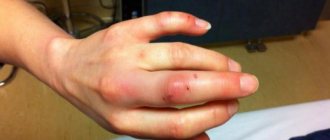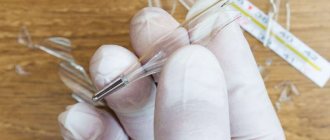There is medicine in the spoon, poison in the cup. Ancient physicians applied this admonition not only to healing infusions, but to food and drinks. Coffee provides a powerful illustration of this ancient wisdom. In moderate doses, the drink gives vitality to the body, clarity of spirit and good mood. If you get too carried away with tasting, you may experience an overdose of coffee. What kind of attack is this, what are its symptoms and how can you cope if you couldn’t resist the temptation and consumed too much of the aromatic drink?
Safe dose of coffee
It is impossible to say exactly who should drink coffee and how much. Everything is individual. One person can drink several cups and not feel anything, while another can drink one cup and feel ill.
Some doctors believe that you should not drink more than 15 cups of natural coffee, otherwise everything will end in serious poisoning. If a person suffers from arterial hypertension, his condition will worsen even after two cups of Espresso.
American scientists conducted a number of studies and proved: “The daily dose of coffee should not exceed more than 3 cups. A person is allowed to drink no more than 220 ml per day.” Additionally, scientists have proven that intoxication can occur if a person regularly drinks coffee.
Please note that American studies are conditional. For example, Robbie Williams drinks about 40 cups of coffee per day. But Honore de Balzac, when he wrote his works, drank about 50 cups of coffee a day. We do not recommend following these indicators, because everything will end very badly.
Nausea from coffee causes - Causes of nausea after eating and ways to eliminate it
Why can you feel sick after drinking coffee? Coffee makes you sick in the morning Why does coffee make you sick? Coffee with milk makes you sick Why does coffee make you sick? Why do you feel sick after coffee?
Anonymous comments are disabled in this journal. Your IP address will be recorded. Recommend this entry Has been recommended Surprise me. We have added a new feature - video hosting. Please click here to upload videos and insert them in your post. Main Ratings Disable ads In Memory Of Anton Nossik. Coffee makes me sick in the morning This morning I felt sick for the first time in 11 weeks. As usual, I drank coffee and a bun, went to brush my teeth, bent over, and then a pain came up in my throat and after a few minutes asked to go back. This happens almost every morning, but I haven’t gotten to the point of vomiting yet. Once I didn’t drink coffee for several days, and on the third day I got a headache. As it turned out, the cause was a lack of caffeine in the body. What to replace coffee with so you don’t feel nauseous and don’t walk around sleepy all day? Post a new comment Error Comments allowed for members only Anonymous comments are disabled in this journal. We will log you in after post We will log you in after post We will log you in after post We will log you in after post We will log you in after post Anonymously. Your reply will be screened Your IP address will be recorded. Post a new comment. Link opens in new window. Remove all links in selection. Post a new comment 25 comments.
Drawings of brake mechanisms Track the parcel by code Verse heather honey text How to remove Windows mail Erudite club long-term plan How much does a new Niva car cost
Symptoms of mild overdose
Signs depend on how severe the overdose is. In mild cases, the following symptoms appear:
- Tachycardia, characterized by rapid heartbeat.
- Increased sweating.
- Sparkle in the eyes.
- Unsteady gait.
- Nervous tics, tremors of arms and legs.
- Dilated pupils (mydriasis).
- Increased nervousness, overexcitement.
- Sudden loss of appetite.
- Nausea.
What to do in case of a mild overdose? It will be enough to drink up to 3 liters of water and deliberately induce vomiting. Continue the procedure until your stomach is completely rinsed. It is forbidden to use potassium permanganate, saline, or soda solution for washing.
After you have cleansed your body, take the adsorbent. For example, activated carbon is suitable. Be sure to drink as much as possible, you can drink fresh milk (200 ml). Within an hour you will feel much better.
Heartbeat
The most common cause of heart palpitations is an overdose of alcohol or caffeine. And, unfortunately, this is not at all harmless: if you leave the symptom unattended, you can end up with serious disruptions in the functioning of the heart. So give up coffee before it gets to the point of dizziness and even fainting (yes, that’s the next stage).
Severe degree of intoxication
Have you drunk too much coffee? The following unpleasant symptoms may appear:
- Dyspnea.
- Suffocation.
- Unbearable headache.
- Unintelligible speech.
- Urge to urinate.
- Consciousness becomes confused.
- Increased sweating.
- The limbs turn red and blue.
- Convulsions appear.
- The temperature rises sharply.
- Hallucinations are disturbing.
- Stupor - a person cannot move, it is difficult for him to talk.
What to do in case of poisoning? Here you need to immediately call an ambulance.
In case of severe overdose, the person is hospitalized. Due to the fact that caffeine has entered the bloodstream, cleansing the stomach will not help. While you are waiting for the ambulance, you need to loosen your clothes and open all the windows in the room. If you are helping a person, try to calm and distract him. Under no circumstances should the victim be allowed to become nervous, otherwise the serious condition will only worsen.
Stomach ache
Abdominal pain may resemble the cramps you experience during or before your period, or it may be a burning sensation in the stomach or a sting like that of poisoning - but all of these symptoms could very well indicate that someone is drinking too much. As noted in a recent study, certain compounds in coffee can stimulate the secretion of gastric juice, causing acidity levels to rise and eat away at the stomach lining. If you often have stomach pain, try giving up coffee - it should help.
The danger of coffee
If you don’t listen to your body and constantly drink large doses of coffee, various diseases and unpleasant conditions may appear.
Tachycardia
A typical cup of coffee contains at least 100 mg of caffeine. This dose activates the metabolic process in the body, as a result, blood vessels constrict and blood circulates in the arteries, which is why the heartbeat increases. If a person is healthy, 2 cups of coffee will not harm him. The main thing is not to drink a drink with alcohol. This applies to those who like coffee with cognac. The drink is also dangerous for those who smoke a lot or abuse various stimulants.
Dehydration
Coffee is a diuretic and large doses can lead to severe dehydration.
Coffee leads to calcium deficiency
The drink affects the acid balance of the body, so it washes away calcium. If you drink coffee, eat cottage cheese, drink as much milk, kefir, and yogurt as possible.
Increased blood pressure
The drink constricts blood vessels, so a large dosage of coffee leads to the development of hypertension. If you suffer from high blood pressure, it is better to drink coffee without sugar, with low-fat milk and after eating. Never mix coffee with energy drinks.
Exacerbation of diseases after drinking
Few people think about what consequences can occur after drinking a cup of coffee. The body cannot always cope with the next dose of caffeine that enters the body through drinking your favorite drink. It’s not just an overdose that can make a person feel bad.
With a weakened body in different situations or with exacerbation of chronic diseases, even a small portion can harm a person. Caffeine negatively affects the heart, brain, blood vessels, stomach and intestines.
You may feel ill after drinking coffee in the following cases:
- blood pressure is higher than normal;
- diseases of the cardiovascular system;
- vegetative-vascular dystonia;
- diseases of the stomach and intestines in the acute stage;
- arrhythmia and tachycardia;
- stressful condition.
Overdose Prevention
It is very important to prevent coffee poisoning; to do this, just follow these recommendations:
- Don't experiment with your own body.
- Listen to how you feel, don’t drink several cups of coffee at once.
- You don't drink coffee at all and decided to try the drink? Your body may react differently, so be careful.
- Espresso is prohibited for people suffering from hypertension and heart disease.
- Coffee is generally prohibited for children.
You can’t imagine yourself without a cup of black natural coffee, drink it, but don’t forget about moderation. It has long been proven that the drink negatively affects health, skin and is life-threatening in large doses.
So, an overdose of coffee is quite dangerous because it leads to serious health problems. If you want to cheer up, look for other ways - play sports, drink tea with lemon and ginger, get enough sleep. Don't take on several things at once, relax, enjoy life and don't rush anywhere. Take care of your health!
More than half of the world's population drinks coffee. This is explained by the universal love for this drink and its ability to tone up and give strength, but different people have different reactions to the drink, including dizziness.
Poisoning caffeine benzoate sodium
You don't have to drink a lot of coffee to get caffeine poisoning. Similar symptoms may appear if there has been an overdose of a drug such as caffeine sodium benzoate. This medicine is prescribed for increased drowsiness or for headaches caused by vascular diseases, to improve performance. If a person has taken more than 300 mg of caffeine sodium benzoate per day, they may experience the same symptoms as listed above.
Caffeine sodium benzoate is prescribed for excessive drowsiness
Also, after taking caffeine sodium benzoate, it should be treated with caution with certain medications. If you take norfloxacin, cimetidine, ciprofloxacin, disulfiram or oral contraceptives at the same time, caffeine will be slowly eliminated and its amount in the blood will increase.
After taking caffeine sodium benzoate, it is dangerous to drink drinks that contain caffeine. Therefore, those undergoing treatment should not drink coffee, strong tea, eat a lot of chocolate or candy bars, or drink energy drinks after taking sodium benzoate. If your doctor has prescribed sodium benzoate for you or your loved one, discuss the possibility of poisoning with him or her. He will tell you about the rules for taking the medicine, diet, etc.
Natural coffee is a healthy and tasty drink. You can afford one or several cups of coffee if you have no health problems. However, you should not get carried away, because excess caffeine can cause serious harm to your body.
Many people cannot imagine life without coffee. This elixir helps you work longer, want to sleep less, and goes great with dessert. It is clear that sometimes you can overdo it, especially if you add dark chocolate to your coffee. And what to do in this case?
Why do you feel dizzy?
The first reason why coffee makes you feel dizzy may be a simple overdose. When the concentration of caffeine and other substances contained in coffee in the blood is prohibitive, the body’s defenses are activated. In order not to cause overstrain of the cardiovascular system, the brain reduces the sensitivity of receptors that do not transmit impulses to other organs and systems. This is the so-called reverse effect, when coffee makes you sleepy, even dizzy. The main way to treat this condition is to temporarily stop drinking the drink for 7-10 days.
If you feel sick from coffee even if you rarely drink the drink, they speak of a special sensitivity of the body.
It is possible that caffeine causes too much blood flow to the brain, causing tightness, spasms, and pain.
This picture can be observed in people with weak blood vessels and hypertension.
Teenagers who have not previously drank coffee may also experience a similar picture during the period of hormonal changes. You may feel suddenly dizzy, and a dull pain in the stomach may appear, similar to an attack of hunger. In this case, it is better to refuse the drink and switch to green tea, the effect of which is less pronounced than that of coffee.
Coffee additives
Many coffee recipes recommend adding various syrups and toppings. Some people may have allergic reactions to these ingredients. The result is nausea and vomiting.
Have you ever gotten sick from coffee? How did you deal with this? Tell us in the comments!
This will help us a lot in the development of the project. Thank you!
The body’s normal reaction after drinking coffee is a surge of energy and vigor, but sometimes the state of health can worsen. Nausea that occurs is the basis for reviewing the quality of the drink and the diet as a whole, and an indication for diagnostics. When your health worsens on a regular basis, you need to consult a therapist.
Cosmo recommends
Don't get wet! 7 stylish raincoats that will save you in a downpour
Perfect Fit: Fashionable skinny trousers that flatter your figure
What are the side effects of caffeine?
Caffeine stimulates the nervous system, eliminating drowsiness. In addition, it promotes the production of adrenaline, increasing the heart rate. Within reasonable limits this is good, but an overdose of caffeine can make you too sensitive to everything, increase anxiety and fearfulness.
How much can you drink? The average dose is 400 mg of caffeine per day, which is about 4 cups of standard coffee. But coffee shops can serve drinks where this amount is in one serving!
And if I have too much coffee, what should I do?
The bad news: It takes about 9.5 hours for caffeine levels in the blood to drop by half. The good news: this doesn't mean you can't escape the consequences.
First, start drinking water. This will relieve some of the overdose symptoms and help the body cope with them more easily.
Don't get wet! 7 stylish raincoats that will save you in a downpour
Secondly, go in for sports. Exercise will help remove caffeine from your body faster.
Thirdly, eat a product rich in potassium and magnesium. For example, banana. Caffeine flushes these elements out of the body, which leads to hand tremors and other troubles.
Effect on the body
Coffee has a wide range of beneficial and negative properties. The first include:
- stimulation of physical/mental activity;
- the presence of antioxidants in the composition helps maintain youth and beauty;
- reducing the risk of diabetes;
- leveling the likelihood of caries;
- improving memory and concentration;
- relieving fatigue;
- accelerating the digestion process.
After drinking 1-2 cups of an invigorating drink, a person’s breathing quickens, the production of gastric juice increases, blood vessels dilate, and a qualitative reaction speed is noted.
The list of harmful properties of natural energy includes:
- decrease in calcium concentration in the body;
- increased blood pressure;
- caffeine addiction;
- exacerbation of digestive disorders;
- insomnia;
- nervous tension/nervousness.
Important! Moderate consumption of coffee (1-2 cups per day) will not cause significant harm to health. But it should be avoided by patients suffering from heart pathologies, gastric ulcers, gastritis and pregnant women.
Headache
Small doses of caffeine can relieve headaches and even prevent migraines. But the key word here is “small”. But when there is too much coffee (too much is at least five cups a day), excess caffeine can cause causeless fatigue and headaches. So carefully monitor the dose and do not exceed it under any circumstances!
Special Recommendations
Ease of preparation is the main argument in favor of an instant drink. However, not everyone knows how much per day you can drink it without harming your health.
Powdered coffee “loses” part of the alkaloid during production. The loss is replaced with its “synthetic” equivalent - a compound called caffeine sodium benzoate. The period of its elimination from the body is twice as long as natural caffeine. If you “drink too much” of a drink containing it, the symptoms of an overdose will appear earlier. Therefore, the daily “maximum” of this substance is no more than 300 mg/day.
“How you want to be constantly cheerful so that you can work day and night!” Almost every modern person thinks this way, and therefore begins to get carried away with seemingly safe and aromatic coffee. We don’t even realize that if we don’t know the measures, there may be an overdose of caffeine and severe intoxication of the body. That is why doctors always warn that you can drink no more than two cups of coffee a day, but be sure to monitor your well-being.
Treatment with folk remedies
People often wonder what to do if they have too much alcohol. After all, the symptoms of a hangover or alcohol intoxication are very unpleasant, so you want to get rid of them as quickly as possible. If there is no medicine in the house to help with a hangover, you can use effective traditional medicine .
You can start drinking drinks with citric and ascorbic acid while still intoxicated. For this, 1/3 tsp. citric acid and 2 tablets of ascorbic acid are poured into a glass of boiling water. During overdrinking, potassium is especially useful, as it promotes frequent urination. Therefore, a spoonful of honey is added to anti-hangover tea, which not only improves the taste of the drink, but is also very useful.
A decoction of valerian and motherwort helps you fall asleep faster after drinking too much alcohol . However, before going to bed, it is recommended to induce vomiting.
How to prevent nausea
Systematic deterioration of the condition after drinking espresso is a reason to consult a doctor. It is necessary to conduct a gastroenterological study, check how often the heart muscles contract, and take tests to determine the level of hormones.
If such problems occur in women, a pregnancy test should also be performed.
The following recommendations will help prevent the occurrence of such symptoms:
- purchase quality products;
- drink coffee with milk. This way it is possible to reduce the acidity level;
- drink a maximum of a couple of cups a day at intervals of 3-4 hours;
- prepare a drink that is not too strong;
- do not drink invigorating liquid on an empty stomach;
- drink at least a small amount of water.
The measure is different for everyone
According to scientists, addiction to coffee and susceptibility to its main component are determined by genes involved in caffeine metabolism.
In other words, how much coffee you can drink per day without harm to your health depends on the body’s tolerance to the alkaloid.
Remember the “record” of the creator of great novels described at the beginning. Trying to approach it, the vast majority of amateurs will leave the race after 6 cups, feeling a surge of heat and dizziness. The seventh portion will lead to visual or auditory hallucinations and other signs indicating an overdose of coffee.
But for small fans, their health may deteriorate after the first tasting of a very strong drink.
From 10 cups of coffee, ≈1 g of caffeine enters the body - a dose that causes intoxication.
Serious consequences, even death, are possible if you drink a lot of coffee in the presence of cardiovascular pathologies, alcohol intoxication, conditions associated with acclimatization or rapid change of time zones.
First aid
If a person has an overdose of caffeine in excess in the body, he needs urgent help. What to do in this situation? If the signs of poisoning are not so strong, you need to drink a lot of water (up to 2.5 liters) and then induce vomiting. Do this until the rinse water becomes clear. Then take activated carbon. The patient needs to drink a lot. In half an hour or an hour he will feel better.
If excess caffeine in the body leads to poisoning, medical help is required. Urgent hospitalization is required, so call an ambulance immediately. Cleansing the stomach will no longer help, because caffeine is absorbed into the blood.
Before the doctors arrive, you can only alleviate the patient’s condition: take him out into the fresh air or open the windows, loosen his clothes so that he can breathe freely. He should not worry, so it is important to calm the poisoned person. No medications other than sorbents should be given.
What's going on inside?
Alcohol, entering the blood, affects the entire body: the nervous system, brain, gastrointestinal tract, blood vessels, heart, kidneys and liver and, of course, the psyche. The wonderful feeling of euphoria that accompanies us after drinking a certain dose of alcohol, as noted by numerous studies, is brain hypoxia. Yes, that’s right, it is caused by the fact that the blood (namely red blood cells) thickens and clogs small vessels and capillaries, which is why the body suffers from a lack of oxygen. But a person feels free and easy, boundaries are erased, and a feeling of permissiveness arises. Someone who is usually reserved in financial matters becomes unusually generous, someone who is modest and shy feels like a soul. Some people become aggressive and touchy when intoxicated.











